TUNISIA: The Ghost Hotels of Djerba

Come with me to explore the shocking ghost hotels of Tunisia.
The Tunisian island of Djerba is a popular beach destination in the summertime for Europeans and more recently for Russians. It is most famous for its long strip of luxury, all-inclusive hotels.
During my trip to Tunisia, we spent a few days on the island. We had heard a lot about, and to some extent could see how the terrorist attacks of 2015 had impacted Tunisia’s tourism. However, it was not until the day we decided to take a walk along Djerba’s beaches that we were able to see the severity of such impacts. We came face to face with the ghost hotels of Tunisia.
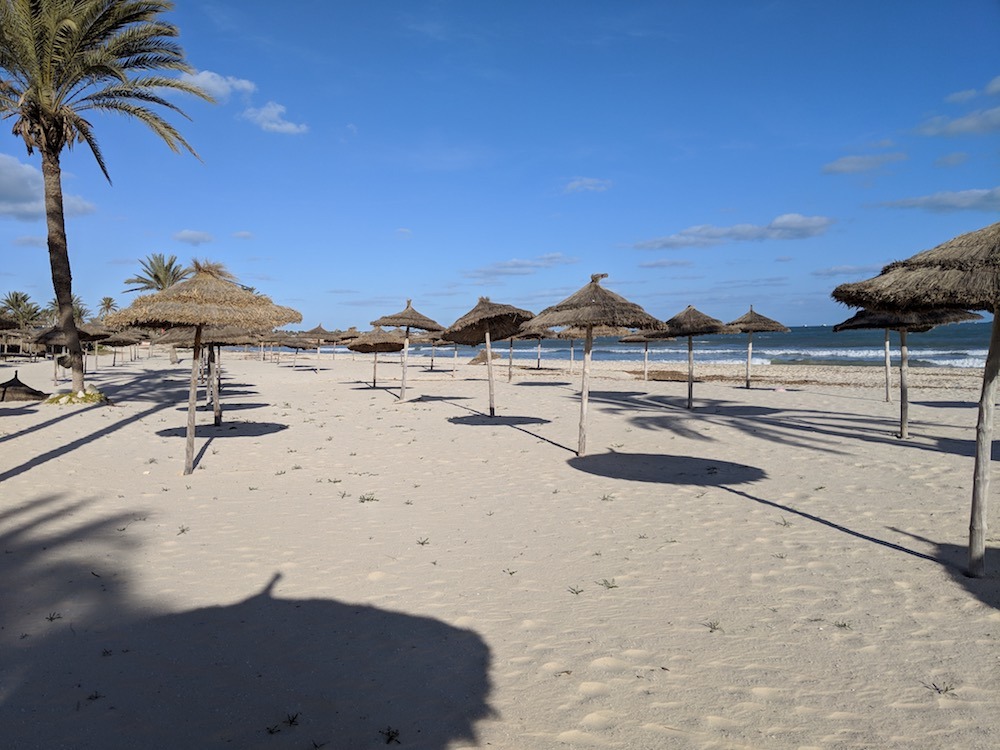
We were not expecting to see the beaches full of half-naked tourists since it was winter time at the temperature was no more than 17C. However, these scenes were out of an apocalyptic movie where you wake up and all humans have disappeared from the earth.
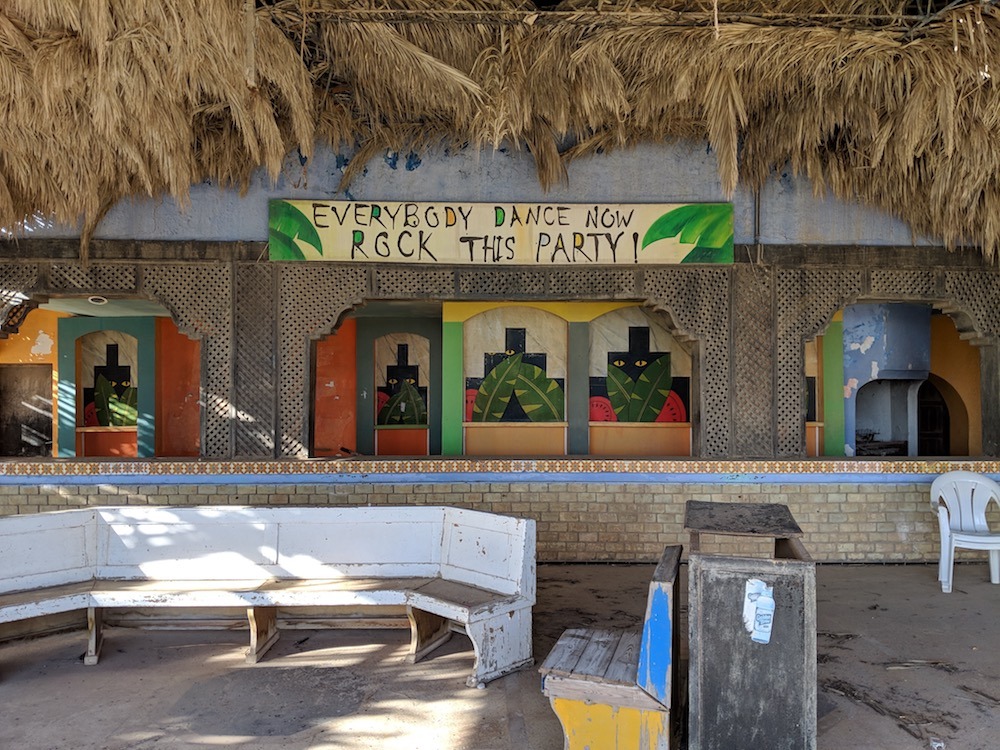
Not a single soul in sight. We walked for about 3km and passed dozens of huge hotels that were completely abandoned and torn down. With all the hotels permanently closed, we did not have a way of getting back on the main road to find a taxi. We were essentially stuck on the beach, so we kept walking. We ventured into a few hotels to explore the sites of utter collapse and decadence. For an hour, we explored in awe how hard the country was hit by the events that turned the tourism industry upside down. I could not stop thinking about the thousands of people who lost their jobs when those hotels collapsed. All the businesses that closed, and all the people whose livelihoods still rely on an impaired industry.
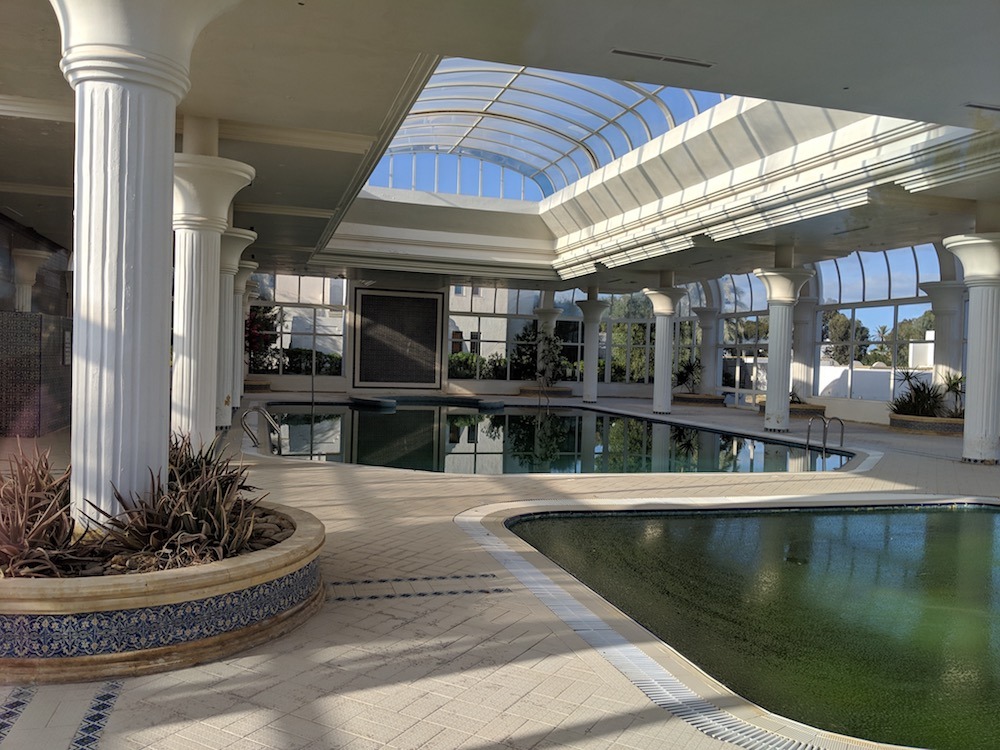
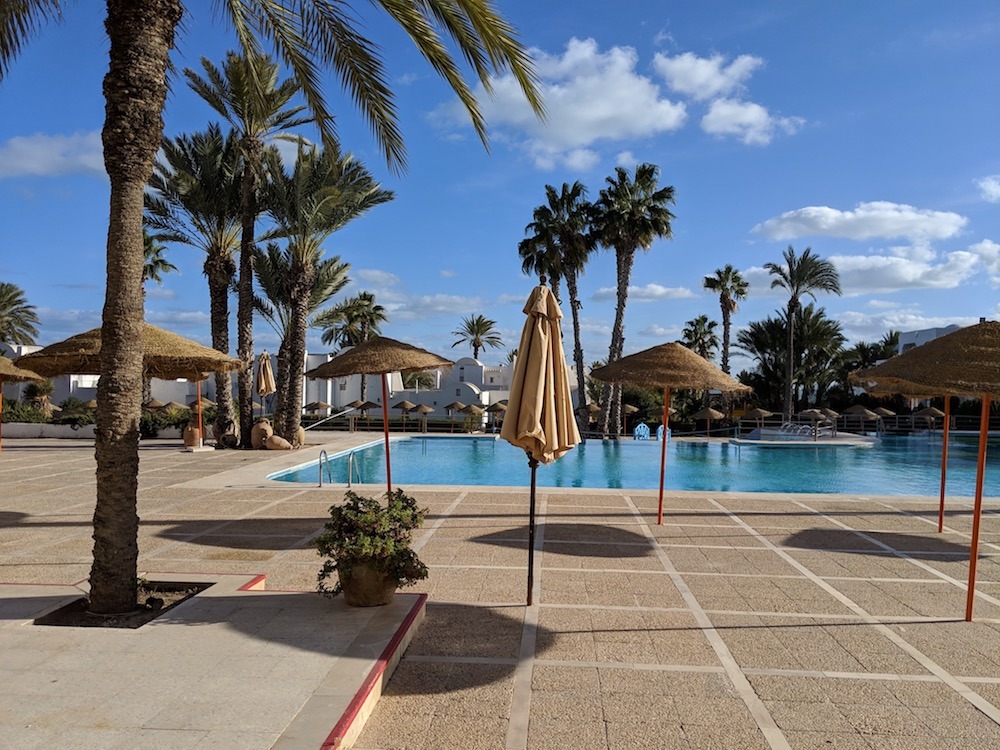
Some hotels were functioning but were completely empty, not even staff in sight. Others were simply in ruins.
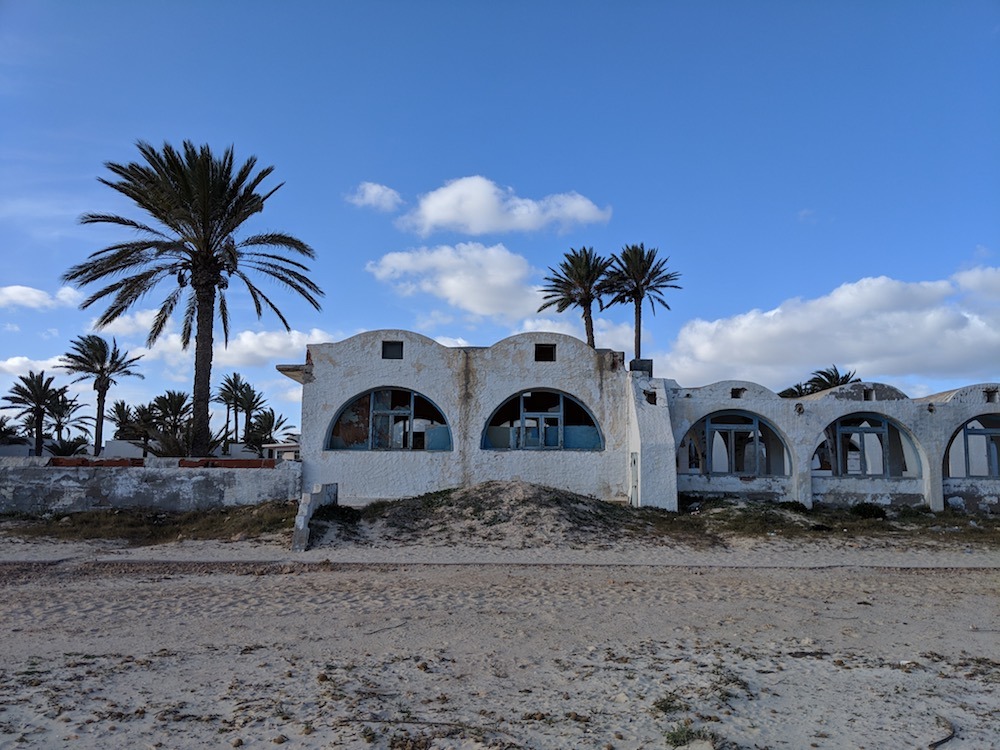
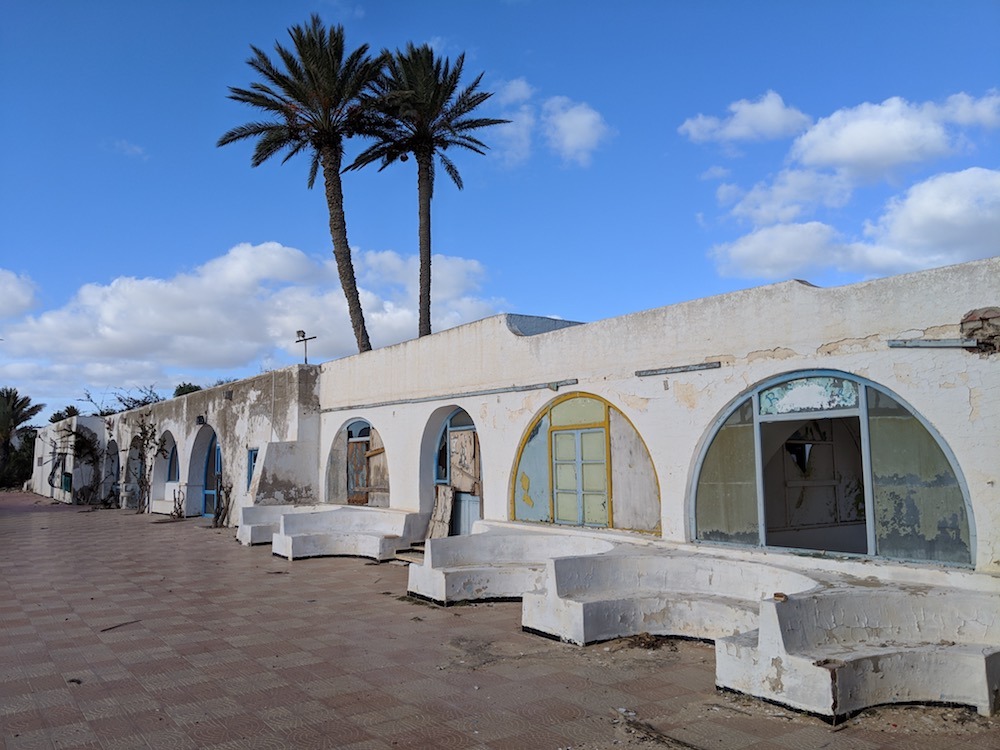
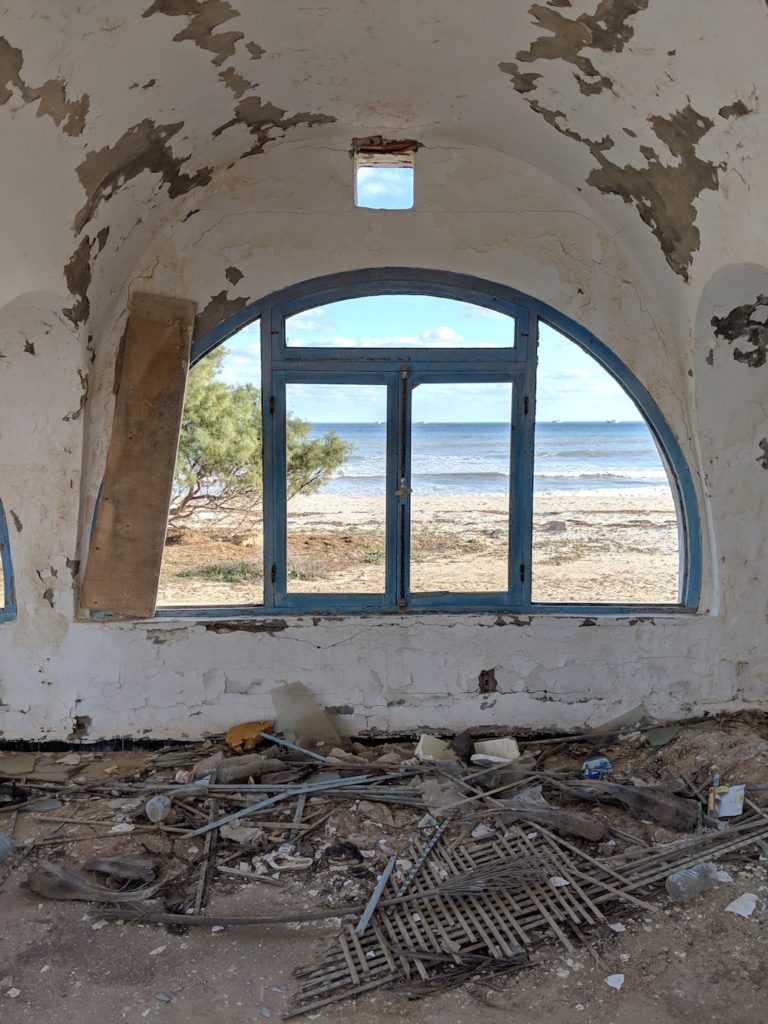
You might also be interested in: In-between Sand Dunes & Canned Tuna
Hari Beach Club
The reality became even more sombre when we eventually reached the first hotel that was actually open. Hari Beach Club; an “ultra all-inclusive hotel” which is a destination for the cheap all-inclusive packages one buys at travel agencies. There were 5 sunburnt Russian tourists lying on sunbeds around the pool, and about 6 people at the bar area. A few elderlies in the lobby along with the awful decoration, made the place look more like an old folks’ home. We took the opportunity to have a beer to drink away the feeling of gloom and got out of there in a matter of minutes. This relaxing mid-day promenade along the beach left us completely mind-blown and feeling sorry for Tunisia for the rest of the day.
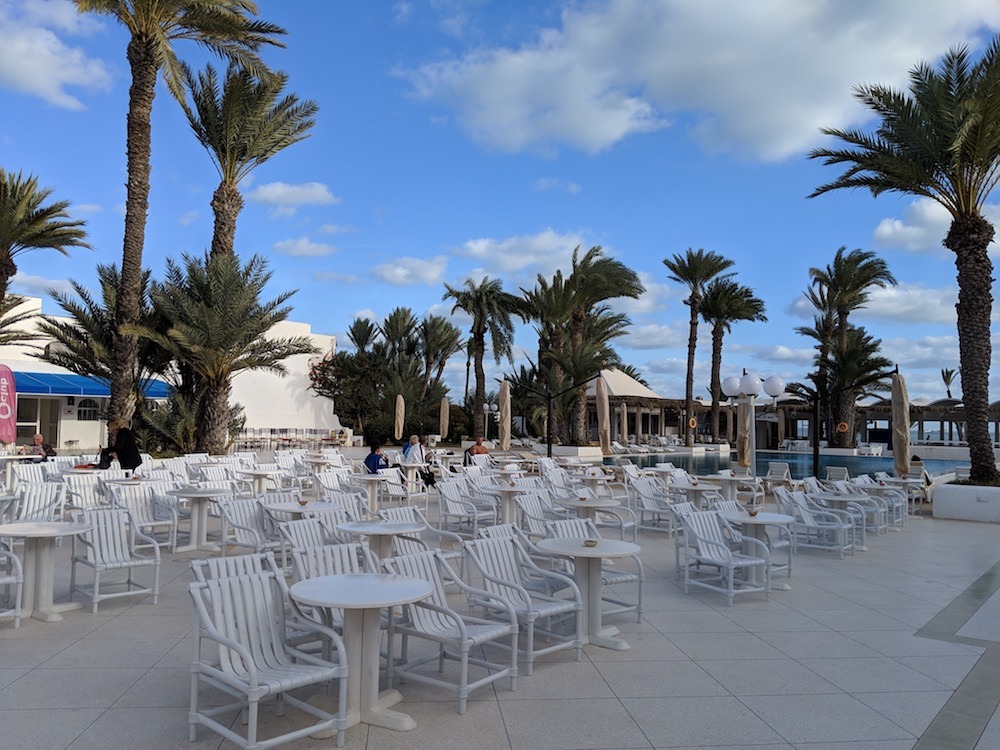
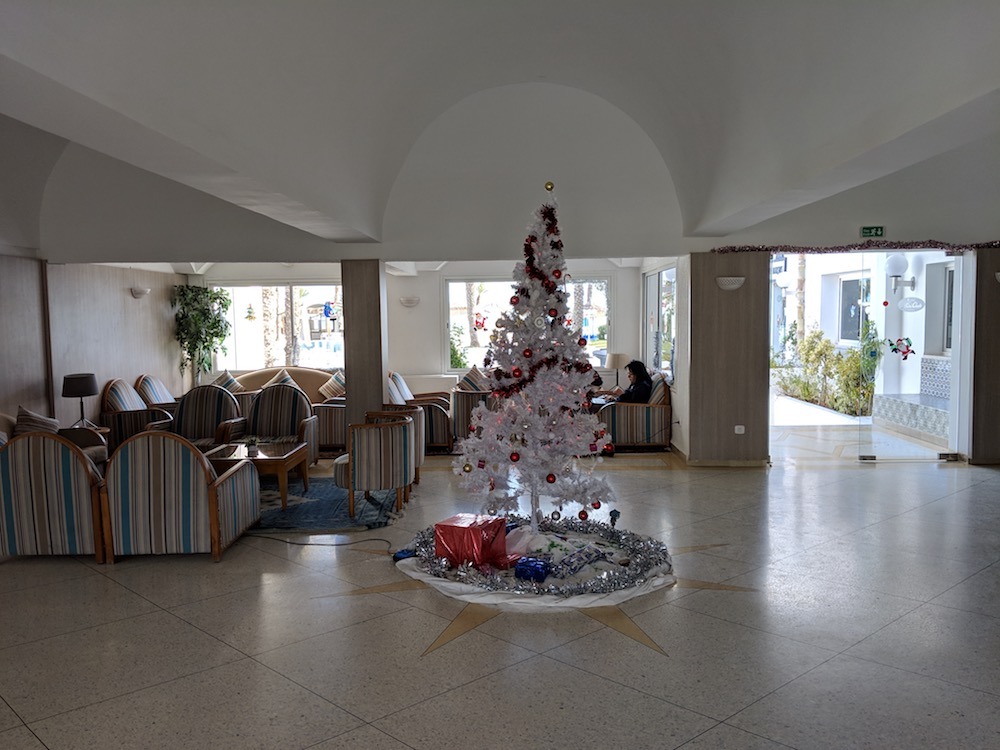
After this experience, I searched the web to find out the story behind those abandoned hotels. It turns out the terrorist attacks were not the only factor that lead to their collapse. Many articles suggest the attacks were merely the trigger that “helped accelerated the rot.” It seems that for many years, Tunisia’s all-inclusive tourism had been growing with the support of the government. This led to the construction of mega-hotels from both national and international companies, state-subsidized. By catering to a single kind of mass-package tourism, Tunisia created a very fragile tourism industry. The collapse of tourism started during the 2011 revolution and continued when the state was unable to bail them out.
Small boutique hotels were less affected after the terrorist attacks. Small businesses are frequented by tourists travelling independently and not as part of an all-inclusive package. Supporting small businesses is the best way we can directly support local people. This also contributes to building a diverse and resilient industry that is not dependent on international business or state funding.
At times when tourism catered for all-inclusive-seekers is in shambles, don’t hesitate… go for small, locally owned accommodations.



Alma de la Gala
Buen artículo, trasmite la impresionante desolación existente. Aun cuando se trata de un pais tan interesante, resulta muy intimidante pensar en viajar a países involucrados en situaciones tan conflictivas….